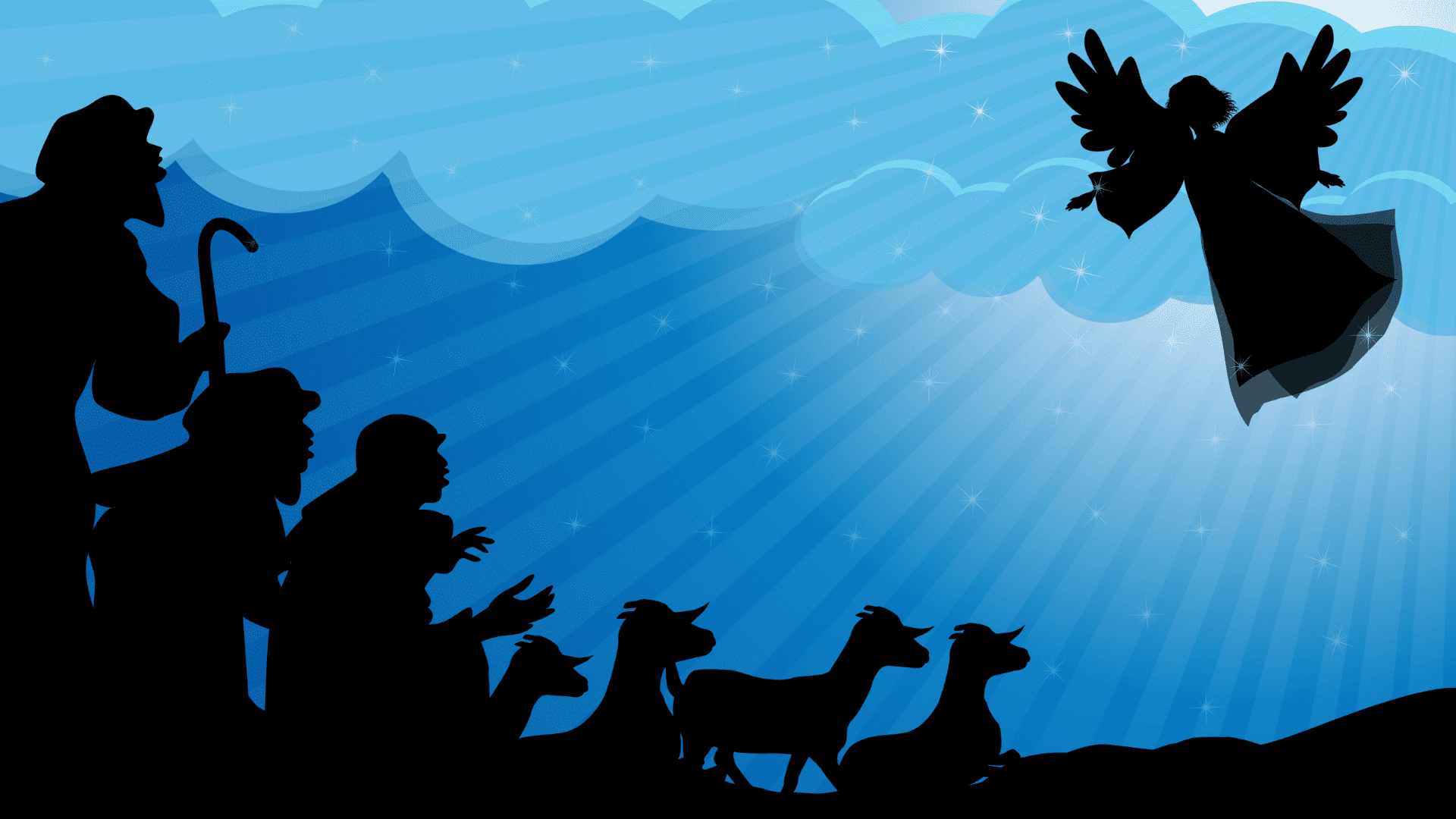The Most Surprising People (Luke 8:19-21)

I've heard someone say that the world can be divided into two types of people:
those who divide the world into two types of people, and those who don't.
Actually, the world can be divided into two types of people: those who love
Mother's Day, and those who don't. We probably have both here today.
Some of you love Mother's Day. Yesterday, your husbands went out to all your
favorite shops and bought you all these gifts. Your kids rose up this morning
and called you blessed. But for others, Mother's Day is a disappointment and
something that you endure. Maybe your husband woke up today and mumbled
something like "I think I'm forgetting something." Your kids woke up and asked
when Kid's Day was. Or some of us are missing our mothers, or never had the
privilege of becoming mothers. For whatever reason, Mother's Day is not fun for
a lot of people.
Today, I'm not really going to speak on Mother's Day. Thinking about this topic,
though, has got me looking at a related one. I've spent some time over the past
few days looking at Jesus' family. You'd think that there would be all this
information about the family of Jesus recorded in the Bible. I have questions.
What would it have been like to be in the same family of Jesus? How many times
did Mary and Joseph say to the other kids, "Why can't you be more like Jesus?"
What would it have been like for Jesus to play with the other kids in the
village? How did it feel to be the parent of Jesus? When the other kids asked
Mary and Joseph what it was like to be born, did Mary say, "Yours was ordinary.
Let me tell you again about when Jesus was born." I have all kinds of questions.
I'm surprised how little we know about Jesus' childhood. We have a few details
about his early years, one incident from the time he was 12, but not much more.
We know about four of his brothers: James, Joseph, Judas, Simon, but we don't
know much about his sisters, if there were any. When Jesus started his public
ministry, Mary would have been in her old age, her late forties. Back then, when
many people died in their thirties, that would have been considered quite old.
Nothing's said about Joseph by the time that Jesus starts his ministry, and many
people guess that he had died. There's a lot that we don't know.
When Jesus started his ministry, his brothers didn't believe him. Mary must have
believed, but even she was worried about him. The Bible tells us that they came
one time to take him home. Maybe his brothers thought he was out of his mind.
Maybe Mary was just worried about him. It's only later that Jesus' brothers
believed, and some of them became major leaders within the early church. But in
the Gospels, it wasn't that way.
One day, Jesus' family came to visit him while he was preaching. Word got to
Jesus that his family was there to see him. I would guess that Jesus would stop
and take a break, and say, "I've got to go see my family. They've come a long
way." At the very least, you would think that Jesus would ask for people to make
room for his mother, to let her in to the front. That's not what happened.
Something even more surprising happened instead. Luke 8:19-21 says:
Once when Jesus' mother and brothers came to see him, they couldn't get
to him because of the crowds. Someone told Jesus, "Your mother and your
brothers are outside, and they want to see you."
Jesus replied, "My mother and my brothers are all those who hear the
message of God and obey it."
I imagine that as Jesus said these words, he was making eye contact with some of
the people in the crowd. He was saying, in essence, "Do you want to know who my
family is? Do you want to know who is as close to me as my own mother, and my
own brothers? It's you, and you, and you."
When you think about who might have been in that room, it's pretty amazing. Just
one chapter before, Luke tells us of a woman who had a reputation as a sinner
who anointed Jesus. She was called an immoral woman (Luke 7:36-50). It was
shocking in that day for any woman to touch a man, but for an immoral woman to
crash the party and anoint Jesus' feet - that would have been something. Jesus
forgave her sins, and it's possible that she might have been in the room as
Jesus said these words. Jesus looked into the eye of people like the immoral
woman, and said, "You want to know who my family is? It's you."
At the start of chapter 8, Luke talks about more women who followed Jesus. He
talks about some of those behind the scenes. Surprisingly, they're women - not
shocking to us today, but very surprising back then. It was a patriarchal
culture. Women weren't supposed to learn from rabbis, or travel with them. Luke
8:2 mentions some women, from whom "he had healed and from whom he had cast out evil spirits. Among them were Mary Magdalene, from whom he had cast out seven demons." Talk about a woman with issues in her past. Maybe she was in the room. If not, there were probably others like her. Jesus looked around at people like her as he said, "My mother and my brothers are people exactly like you."
Luke 8:3 mentions some more women, but these were wealthy and powerful:
"Joanna, the wife of Chuza, Herod's business manager; Susanna; and many others
who were contributing from their own resources to support Jesus and his
disciples". Talk about a hodgepodge of people. I'd love to see them all
together. Somehow, Jesus knew how to relate to people with a reputation, but he
also knew how to relate to people of means. He looked around at them and said,
"You're my family, not because of your wealth, but because you're hearing and
obeying me. You're as close to me as my own flesh and blood."
Later on, Jesus casts demons out of more people and hangs around other shady
characters. One of the themes all through the book of Luke is how Jesus chose
people that you and I would overlook, and befriended them. Jesus came to save
those whom traditional religion would have put outside the boundaries. He looked
around at them and said, "You're as close to me as my own flesh and blood. I've
made you part of my family."
If Jesus was here today — and he is, by the way — he would look around here and
say the very same thing. The most surprising people get to become part of God's
family. This is the extent of his love for us, that people with reputations,
people with a past, people shunned by ordinary religion, are welcomed into the
family of Jesus. God loves you enough to make you part of his close family.
You don't get to be part of Jesus' family because you deserve it. The most
surprising, the most unlikely people get to be part of Jesus' family because
they hear and respond to what Jesus says. They aren't worthy, but they're
related because they follow Jesus. And Jesus looks into the eye of these most
unlikely people, and says, "You're as close to me as my very own family."
Today we're celebrating Communion. It's celebrated to remember what Jesus did
for us by dying for us. When the early church celebrated this remembrance, they
did so in the context of a meal called the Love Feast. Today, we're going to
celebrate Communion in the context of a family meal. Jesus invites you to come
as part of his family today. You may be one of the most unlikely people to be in
a church, to be called part of his family. You're invited, because he looks at
you and says, "You want to know who my family is? It's you."
[break for communion]
Just as we're getting ready to leave, I want to leave you with a challenge. This
morning, we've celebrated that the most surprising people become part of Jesus'
family. We haven't talked about how this happens.
Take a survey in the average church on how you join the family of Jesus, and you
won't hear what Jesus says is necessary. You may hear a lot about making a
decision. We focus a lot on making a decision to follow Jesus, which is one part
of the process, but only one part. It's not the whole thing. Sometimes I think
we miss the point because we've reduced everything to one event, and ignore
everything else that's supposed to go on before and after that point.
Some people might emphasize praying and reading the Bible, having a quiet time,
and so on. All of that's good, but that's not what Jesus says either. In fact,
you can spend hours praying and reading the Bible and miss out on what Jesus
says is the key to following him. Jesus said, ""My mother and my brothers are
all those who hear the message of God and obey it."
That's it. The key is hearing God, and obeying him. The entire chapter, Luke 8,
is about hearing and responding appropriately to God's message. Jesus said in
verse 18, "To those who are open to my teaching, more understanding will be
given. But to those who are not listening, even what they think they have will
be taken away from them." This is deceptively simple. It seems that some
sophisticated religious types will go to all kinds of effort to become
spiritual, but will miss the most basic requirement: to hear God, to really take
the time to listen to him and respond. But some of the least religious types may
master nothing but one thing: hearing and responding to whatever God says. And
this one difference between them will make all the difference.
The problem in my life is not that I don't hear from God. I have all kinds of
Bibles and sermons and resources at my fingertips.
The problem in my life is that I am overwhelmed with input, and I can easily
turn God into one of the many sources of input that I'm managing. The real
danger for us today is that we never tune everything else out and simply tune
into God and hear what he's saying to us. We have a hearing problem, and it's
not because we've stopped listening. We're listening, but we never listen to God
and God alone.
If this is so important - and it is - what are you doing to tune into heaven,
and to listen to God on a regular basis? Simple. It may be taking time
consistently to forget about the e-mails, newspapers, blogs, and phone calls,
and opening God's Word and praying, asking him to speak into your life. To those
who listen, more will be given, but for those who aren't listening, Jesus says,
even what they have will be taken away.
And then, once we hear, we need to respond and say, "Okay, God, I've heard and
now I'll do it." Pretty simple, yet amazingly hard to do. The essence of
following Jesus is relationship. It's not a decision or a technique. It's simply
dialing into that relationship and allowing God to speak into your life, and
offering him your obedience to whatever he says.
The most surprising people get to be part of God's family in the most surprising
way. Celebrate that you're part of the family. But I hope you'll also take
time this week to dial everything else out, and to dial into heaven to hear
God's voice, to allow him to speak to you through his Word and through prayer,
and then to simply respond to whatever he says.





